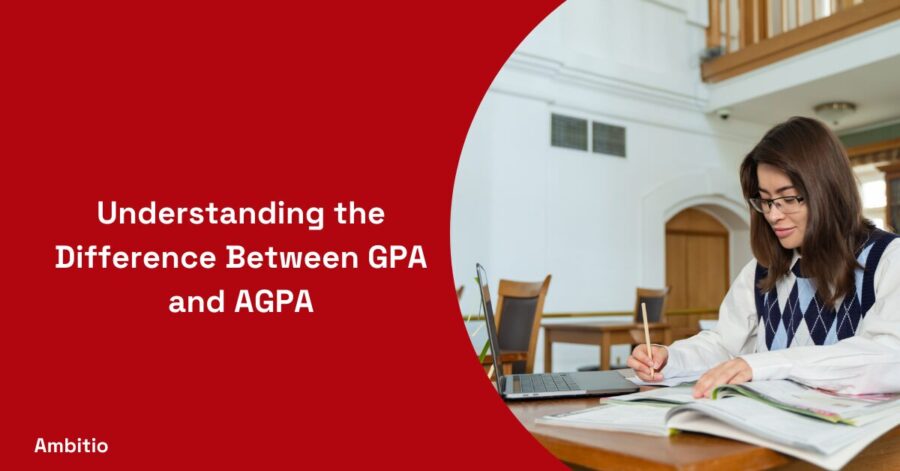11 December 2024
5 minutes read
Understanding the Difference Between GPA and AGPA: A Comprehensive Guide

The acronyms GPA and AGPA are often encountered in distinct contexts – academic performance and real estate transactions, respectively. This comprehensive guide aims to clarify these concepts, highlighting their differences, applications, and significance.
AGPA: A Vital Tool in Real Estate Transactions
Understanding the Legal Structure of AGPA
The Agreement of Sale Cum General Power of Attorney (AGPA) is a legal framework used in property transactions. It combines the elements of a sale agreement and a power of attorney, allowing one party to act on behalf of another in the sale of property.
This dual nature of AGPA makes it a powerful tool in real estate, particularly in scenarios where the direct involvement of the property owner is not feasible.
The Role of AGPA in Property Transfer
AGPA plays a crucial role in the conveyance of property rights. It’s not just a simple document but a comprehensive legal contract that outlines the terms of the property sale and the responsibilities of the AGPA holder.
This holder acts as the agent, having the authority to complete the transaction on behalf of the principal. Such an arrangement is common in situations where the owner cannot be present to execute the sale.
Legal Implications and Validity of AGPA
The legal standing of AGPA can vary based on regional laws and court rulings. In some jurisdictions, the use of AGPA in property transactions has been scrutinized, leading to legal reforms.
It’s vital to consult a lawyer to understand the current legal status of AGPA in your area, especially considering landmark cases like the Suraj Lamp decision in India, which impacted the validity of AGPA in property sales.
GPA: Measuring Academic Achievement
Decoding GPA in the Academic Landscape
Grade Point Average (GPA) is a universally recognized metric used in educational institutions to assess a student’s academic performance. It’s a numerical representation that averages a student’s grades over a specified period, such as a semester or an entire academic program.
GPA is often used as a benchmark for academic success and can influence opportunities like scholarships, admissions, and job prospects.
The Calculation and Significance of GPA
Calculating GPA involves dividing the total accumulated grade points by the total number of credit hours undertaken. Different institutions might use varying scales (like a 4.0 or 10.0 scale), but the underlying principle remains the same.
A high GPA is often seen as indicative of a student’s mastery of the course material and their dedication to their studies.
GPA Variations: Understanding CGPA and AGPA
While GPA generally refers to the average grades of a single term, Cumulative Grade Point Average (CGPA) extends this concept to cover the entire duration of a student’s academic program.
In some contexts, AGPA (Annual Grade Point Average) is used, to reflect a student’s performance over an academic year. Understanding these variations is crucial for accurately interpreting academic records.
AGPA in Real Estate: Beyond Simple Documentation
Complexity and Necessity of AGPA in Property Deals
AGPA’s complexity lies in its dual nature, combining a legal agreement with an authorization to act on someone’s behalf. This complexity is necessary for ensuring that property transactions are conducted legally and efficiently, especially when the owner is unable to directly participate in the sale process.
Implications of AGPA for Property Owners and Buyers
For property owners, AGPA provides a means to facilitate the sale without their physical presence. For buyers, it assures that the person they are dealing with has the legal authority to sell the property. This dual assurance is critical in real estate transactions, safeguarding the interests of both parties.
Navigating the Legal Landscape of AGPA
Given its legal complexity, navigating AGPA requires a thorough understanding of property laws and often the guidance of a qualified lawyer. This ensures that all parties involved in the transaction are compliant with legal requirements and that the AGPA is executed correctly.
The Academic World of GPA: More Than Just Numbers
GPA’s Role in Student Life and Opportunities
GPA is more than just a number; it’s a reflection of a student’s academic journey. A high GPA can open doors to prestigious universities, scholarships, and competitive job markets. Conversely, a lower GPA might require a student to seek additional opportunities to showcase their abilities.
Challenges and Strategies in Maintaining a High GPA
Maintaining a high GPA can be challenging, requiring consistent effort, time management, and a strong grasp of the subject matter. Students often develop strategies like prioritizing certain courses, seeking academic help, and balancing their course load to maximize their GPA.
The Impact of GPA on Future Prospects
The implications of GPA extend beyond graduation. Employers, graduate schools, and professional programs often consider a candidate’s GPA as a measure of their academic ability and work ethic. Therefore, understanding and striving for a good GPA is crucial for students eyeing future academic and career achievements.
Comparing AGPA and GPA: Diverse Applications in Different Spheres
| Aspect | AGPA (Agreement of Sale Cum General Power of Attorney) | GPA (Grade Point Average) |
|---|---|---|
| Primary Sphere | Real Estate Transactions | Academic Performance Evaluation |
| Definition | A legal document that combines a sale deed with a power of attorney, authorizing one person to act on behalf of another. | A numerical calculation that reflects a student’s average grades over a specific period. |
| Purpose | Facilitates the sale and transfer of property rights when the owner is not present or able to execute the sale themselves. | Measures and tracks a student’s academic performance and progress. |
| Key Elements | The sale agreement, power of attorney, property rights, and legal compliance. | Course grades, credit hours, and academic standards. |
| Application | Used in legal transactions involving the sale of property. | Used in educational institutions for assessing student grades. |
| Impact | Influences real estate market, property sales, and legal procedures in property transactions. | Affects academic opportunities, scholarships, and career prospects. |
| Expertise Required | Legal knowledge, and understanding of real estate laws and procedures. | Academic proficiency, and understanding of grading systems. |
| Stakeholders | Property owners, buyers, real estate agents, legal professionals. | Students, educators, academic institutions, employers. |
| Documentation | Legal documents pertaining to property sale and transfer of authority. | Academic transcripts, report cards, and grade sheets. |
| Legal Considerations | Must comply with regional property laws and legal standards. | Generally governed by institutional policies and educational regulations. |
| Variability | Can vary significantly based on local laws and court rulings. | Varies based on the educational institution and grading system (e.g., 4.0 or 10.0 scale). |
| Long-term Impact | Influences property ownership, legal standing of transactions, and real estate market dynamics. | Influences career paths, further education prospects, and overall academic trajectory. |
| Evolving Trends | Subject to changes in property law and real estate market conditions. | Reflects changes in educational standards, grading policies, and academic expectations. |
Legal and Academic Perspectives: The Broader Significance of AGPA and GPA
AGPA’s Role in Shaping Real Estate Practices
AGPA has a broader impact on real estate practices, influencing how property sales are executed and regulated. Its use and validity often reflect the legal and economic climate of a region, impacting real estate trends and practices.
GPA as a Reflection of Educational Standards
GPA serves as a barometer for educational standards, reflecting the rigor and quality of academic programs. It also influences teaching methodologies and student engagement, shaping the overall educational landscape.
The Future of AGPA and GPA: Evolving Trends and Practices
Both AGPA and GPA are subject to evolving trends and practices. Legal reforms can alter the application and relevance of AGPA in real estate, while educational reforms can change the way GPA is calculated and valued in academic circles.
Conclusion
Understanding the difference between GPA and AGPA is essential in navigating their respective realms effectively. While they may share a similar acronym, their applications, implications, and requirements are vastly different.
Whether you’re a student striving for academic excellence or a participant in the real estate market, appreciating the nuances of GPA and AGPA is crucial for success in these diverse fields.
FAQs
What is the main purpose of AGPA in property transactions?
AGPA serves as a legal document for transferring property rights and executing sales, combining a sale agreement and power of attorney.
How is GPA calculated in the academic context?
GPA is calculated by dividing the total grade points earned by the total credit hours attempted, reflecting a student’s academic performance.
Can AGPA be used for all property transactions?
AGPA’s applicability depends on the legal requirements of the region and the nature of the transaction. Legal advice is recommended.
What’s the difference between GPA and CGPA?
GPA typically refers to a single term or year, while CGPA (Cumulative Grade Point Average) represents the overall average across multiple academic terms.
Is AGPA legally binding in all regions?
The legality of AGPA varies. In some regions, like India, its validity has been subject to judicial scrutiny, such as in the Suraj Lamp case.

You can study at top universities worldwide!
Get expert tips and tricks to get into top universities with a free expert session.
Book Your Free 30-Minute Session Now! Book a call now




























